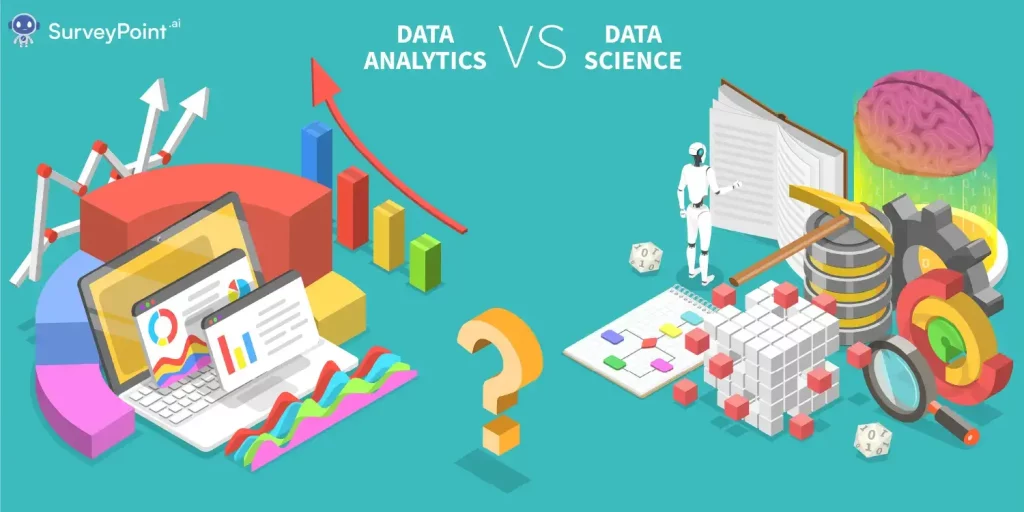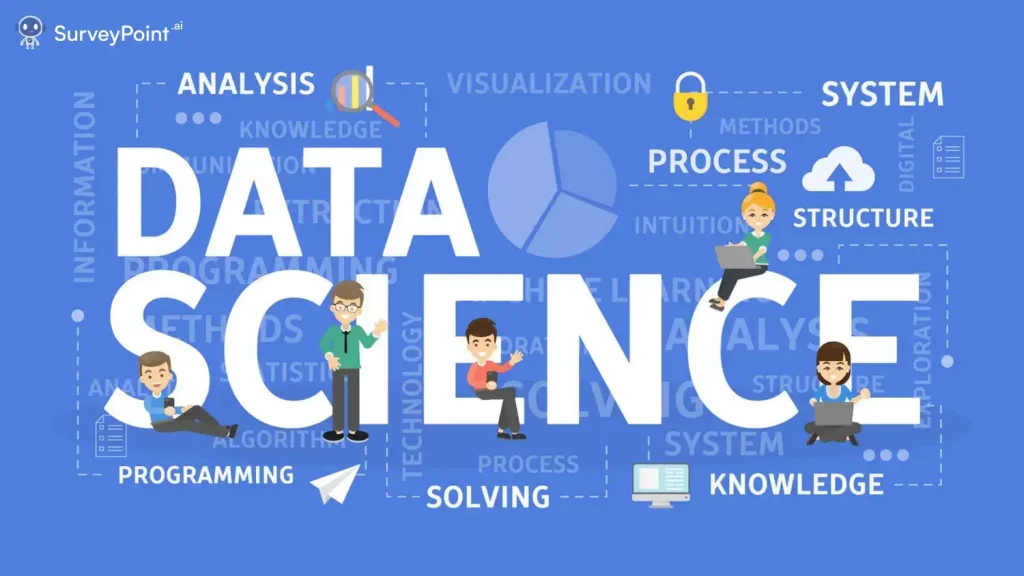
Uncover the nuances between Analytics and Data Analysis with our comprehensive guide on Analytics vs. Data Analysis. Gain insights, boost your expertise, and stay ahead in the world of data-driven decision-making.
In the dynamic realm of data utilization, understanding the distinctions between Analytics and Data Analysis is paramount. This blog delves deep into Analytics vs. Data Analysis, offering valuable insights for both beginners and seasoned professionals.
The Essence of Analytics
Analytics involves the interpretation of complex datasets to uncover trends, patterns, and meaningful insights. It goes beyond mere data examination, aiming to provide actionable intelligence for informed decision-making.
The Core of Data Analysis
Data Analysis, on the other hand, focuses on inspecting raw data to draw conclusions. It’s about dissecting information to understand its underlying structure, making it a foundational step before the implementation of analytics.
Purposeful Outcome in Analytics
Analytics aims for specific outcomes, providing answers to targeted business questions. It’s proactive, guiding strategic initiatives based on data-driven insights.
Exploratory Nature of Data Analysis
Data Analysis is exploratory, seeking to understand the data landscape without a predefined agenda. It’s the preliminary phase before diving into the specifics of analytics.
Role in Decision-Making
Analytics Driving Strategic Decisions
Analytics plays a pivotal role in shaping strategic decisions, offering a comprehensive view that aids leaders in making informed choices for business growth.
Data Analysis Influencing Tactical Moves
Data Analysis informs tactical moves, focusing on the immediate implications of the available data. It’s crucial for day-to-day operational decisions.
Tools and Technologies

Advanced Tools in Analytics
Analytics often involves sophisticated tools like predictive modelling, machine learning, and artificial intelligence, enabling organizations to foresee future trends.
Fundamental Tools in Data Analysis
Data Analysis employs basic tools for statistical analysis and visualization, laying the groundwork for advanced analytics.
Skill Sets Required
Analytical Skills for Analytics
Professionals in analytics need advanced analytical skills, statistical proficiency, and expertise in utilizing complex tools for meaningful interpretations.
Detail-Oriented Skills for Data Analysis
Data Analysts require a keen eye for detail, adeptness in handling large datasets, and the ability to derive actionable insights from raw information.
The Continuous Evolution
Both Analytics and Data Analysis are subject to constant evolution. The integration of new technologies and methodologies ensures their relevance in the ever-changing landscape of data science.
You Must Read 7 Secrets Every Databricks Beginner Should Know 7 Incredible Tips for Mastering Azure Data Factory Design Patterns: Unlocking Success Get Hired Fast: Essential Data Analyst Skills You Can’t Ignore in 2024
FAQs for Analytics vs. Data Analysis
Q: Is Analytics and Data Analysis the Same?
A: No, while they share similarities, Analytics involves drawing conclusions for strategic decisions, whereas Data Analysis is a preliminary step focused on exploring data.
Q: Can Data Analysis Exist Without Analytics?
A: Yes, Data Analysis is a standalone process, but Analytics often follows, utilizing the insights derived from the analysis.
Q: How Important is Analytics in Business?
A: Extremely important. Analytics empowers businesses to make informed decisions, optimize processes, and gain a competitive edge in the market.
Q: Are the Tools Used in Analytics and Data Analysis Different?
A: Yes, analytics employs advanced tools like machine learning, while data analysis primarily involves statistical tools.
Q: What Skills Are Essential for a Career in Analytics?
A: Analytical skills, statistical proficiency, and expertise in utilizing complex tools are crucial for a successful career in analytics.
Q: Why is Data Analysis Considered Fundamental?
A: Data Analysis is fundamental as it lays the groundwork for analytics, providing a foundational understanding of the available data.
Conclusion:
In the ever-evolving landscape of data science, understanding the Analytics vs. Data Analysis is instrumental. Whether you’re a seasoned professional or a beginner, embracing these distinctions will undoubtedly enhance your prowess in leveraging data for informed decision-making.




